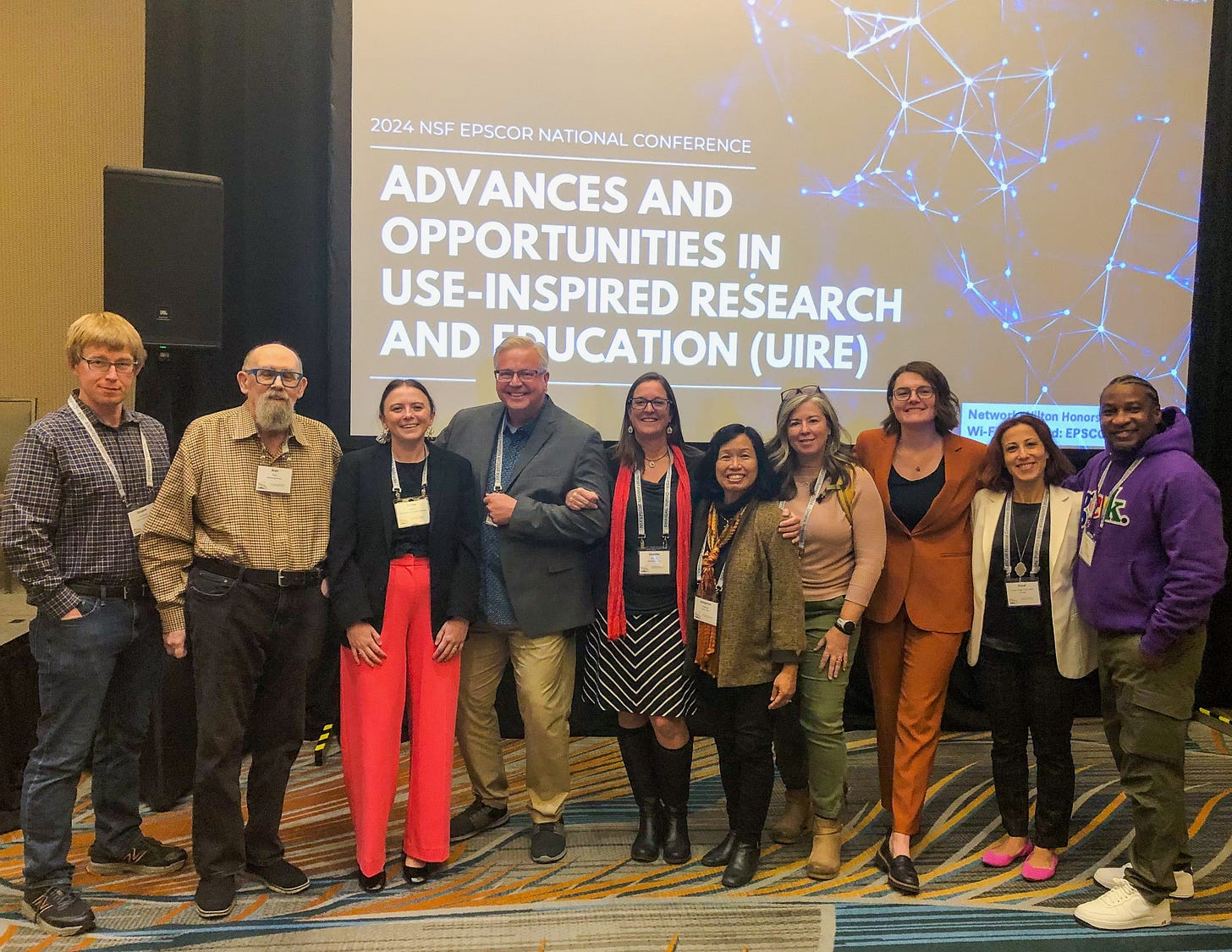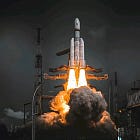Advances and Opportunities in Use-Inspired Research and Education: 2024 National NSF EPSCoR Conference Presentation
Links to resources and a recap of our session at the 2024 National NSF EPSCoR Conference

Overview of the Session
On October 15, 2024, we presented at the 28th National EPSCoR Conference in Omaha, Nebraska!
The session, titled “Advances and Opportunities in Use-Inspired Research and Education (UIRE)”, included team leads or members from each of the Umbrella Working Groups who shared more about their progress over the last year.
Our session highlighted the transformative power of use-inspired research and education (UIRE) in reshaping traditional research paradigms, focusing on not just how research is conducted but also who participates and benefits. Attendees explored practical ways to implement UIRE methodologies through real-world examples and engaged discussions.
Key areas of focus included:
Building cross-sector collaborations to address shared challenges.
Establishing institutional programs and capacity to support UIRE practices.
Integrating UIRE principles into K-12 education to inspire future innovators.
Crafting community-based agreements that uphold equity and trust.
Ensuring inclusive practices for diverse participation and representation.
Through this dynamic session, participants discovered how UIRE initiatives are driving impactful, community-centered outcomes and left with actionable insights to incorporate UIRE approaches into their own work.
Resources to Keep Learning and Building
Some resources that were mentioned throughout the session are linked below:
Lauchpad Working Group Learning Modules:
The Launchpad Umbrella Working Group has created a series of learning modules to provide an overview to use-inspired research practices and provide tangible examples to assist with implementation.
Readings on Team Science:
If you are less experienced with interdisciplinary collaboration and not feeling ready to dive into transdisciplinary practice read this paper that provides practical advice for science collaboration. The indented audience is NIH scientists, but the message applies to all academics looking to move from single or intradisciplinary projects to generation of interdisciplinary knowledge.
Bennett, L. M., & Gadlin, H. (2012). Collaboration and team science: from theory to practice. Journal of investigative medicine, 60(5), 768-775. https://pmc.ncbi.nlm.nih.gov/articles/PMC3652225/
If you are more experienced with interdisciplinary work and comfortable with terms like "epistemic diversity" or "social construction of knowledge" read this one. Be sure to explore table 2.6 and the other linked graphics. This paper is more dense and may require some extra processing to apply outside of the social sciences; it is also more up to date.
O’Rourke, M., Crowley, S., Laursen, B., Robinson, B., & Vasko, S. E. (2019). Disciplinary diversity in teams: integrative approaches from unidisciplinarity to transdisciplinarity. In Strategies for Team Science Success (pp. 21-46). Springer, Cham. https://link.springer.com/chapter/10.1007/978-3-030-20992-6_2
Link to the Presentation Slides as a PDF:
Work related to this post was funded under NSF Grant #FAIN-2309541.




